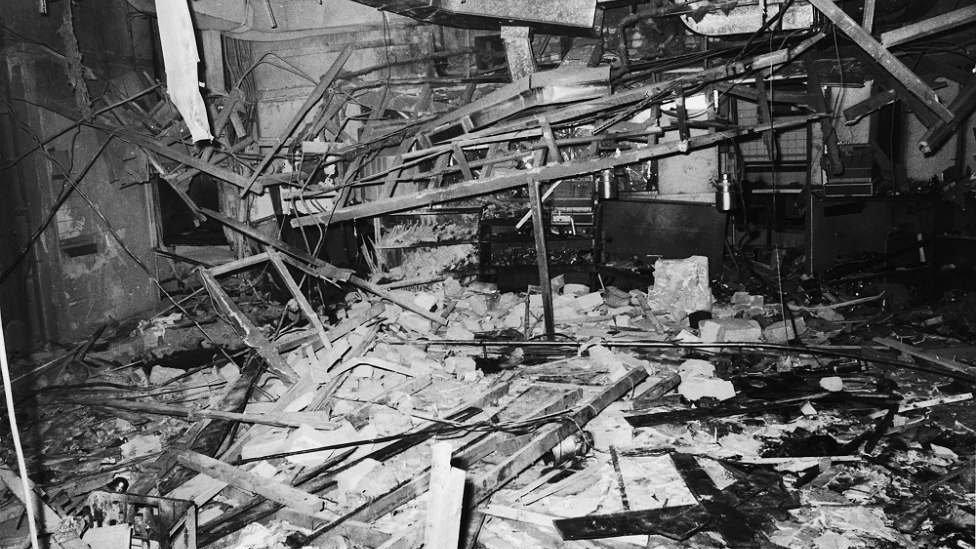Birmingham pub bombings: Relatives 'horrified' at passing of Legacy Bill
- Published
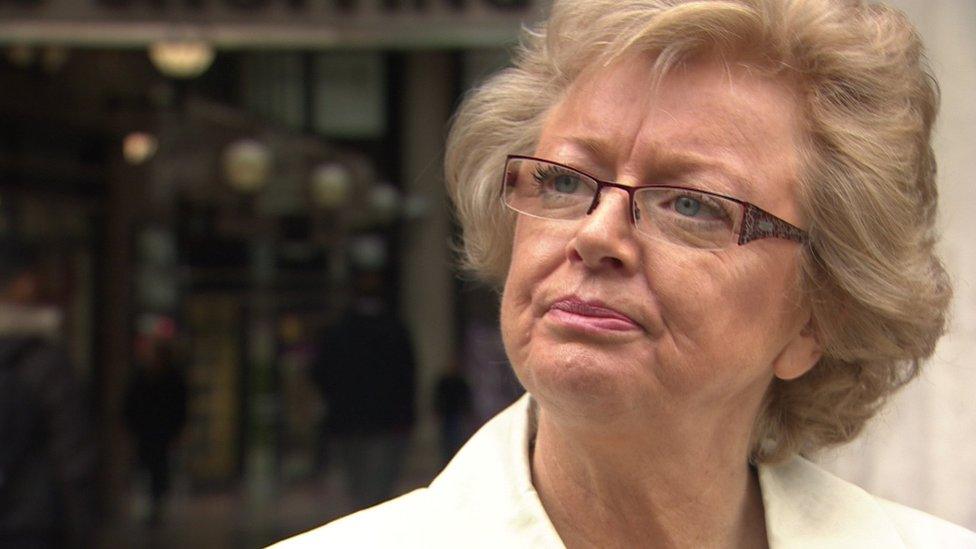
Julie Hambleton said all families were united in their fight against the bill
Relatives of the Birmingham pub bombings said they would continue to fight for a public inquiry despite the passing of a bill to end Troubles-era prosecutions.
The government's Northern Ireland Troubles Legacy Bill was passed in the House of Commons on Wednesday.
It will end new cases and inquests, as well as offering a conditional amnesty to those accused of killings.
But campaigner Julie Hambleton said families were horrified by the bill.
The government has said the legislation, which applies to all former members of the security forces and ex-paramilitaries, is an attempt to draw a line under the events of the past.
But Ms Hambleton, who lost her sister Maxine in the blasts, said the bill - widely opposed by victims groups and all of Northern Ireland's political parties - was "an absolute disgrace to democracy and the mother of law and order".
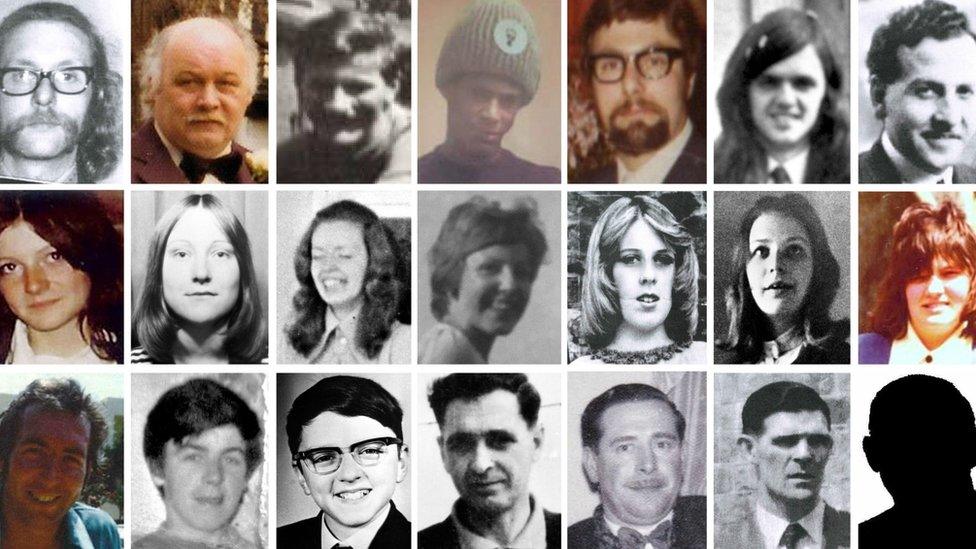
The two explosions in Birmingham in November 1974 killed 21 people
"This government is meant to be the party of law and order, well they've just smashed that wide open, haven't they?," she said.
The Crown Prosecution Service (CPS) confirmed last month that there was insufficient evidence to bring charges following a re-investigation into the deaths of 21 people in two pubs in the city in November 1974.
Their families said they were disappointed and angry at the decision and Ms Hambleton told BBC Midlands Today on Wednesday that there was no reason they should not be granted a public inquiry.
"For years we were told, or we were never considered being part of the legacy conflicts but now we're being told to get in line and to join this club that nobody wants to belong to," she said.
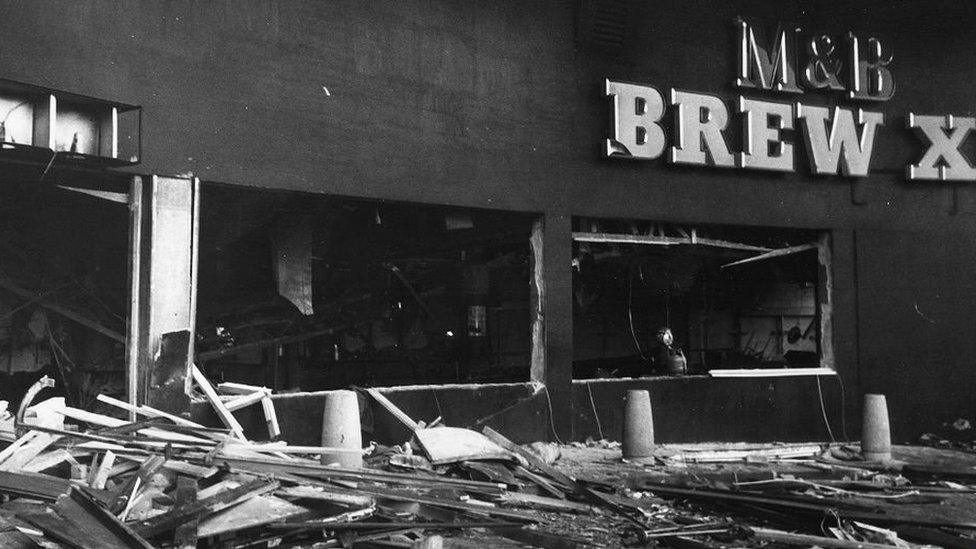
The Mulberry Bush and the Tavern in the Town were targeted
She said opposition to the bill "in Washington, in Europe, the UN, particularly in Northern Ireland is absolute" and there was nothing in the legislation for "people who were blown up, shot, tortured or disappeared".
"Nobody agrees with it. It is the most obscene piece of legislation that any government anywhere in the world could possibly try to legislate," she added.
It was about the government controlling what information was released "and that is the issue here".
Irish prime minster Leo Varadkar said the Irish government was assessing advice on the strength of taking a legal case against the UK over the bill.
"This is the wrong way to go about dealing with legacy issues in Northern Ireland," he said.
The bill was passed after a vote in Westminster and return to the Lords next week before going for royal assent.
Ms Hambleton said she was present for the debate along with other families who were all united in their fight against it.
However, she said it was heartening to hear Hilary Benn, the new Labour shadow secretary of state for Northern Ireland, had said the party would repeal it if they got into government.

Follow BBC West Midlands on Facebook, external, Twitter, external and Instagram, external. Send your story ideas to: newsonline.westmidlands@bbc.co.uk, external
Related topics
- Published21 August 2023
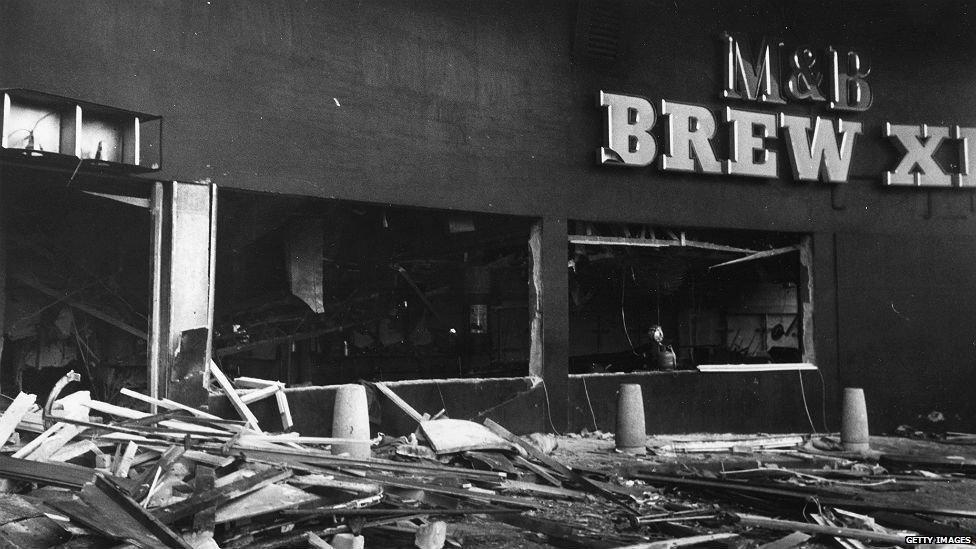
- Published11 July 2023
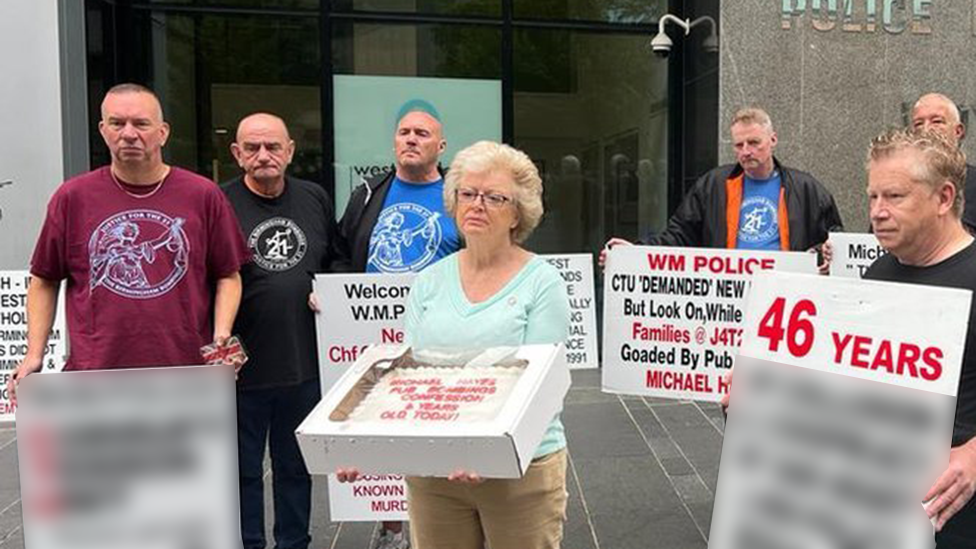
- Published21 November 2022
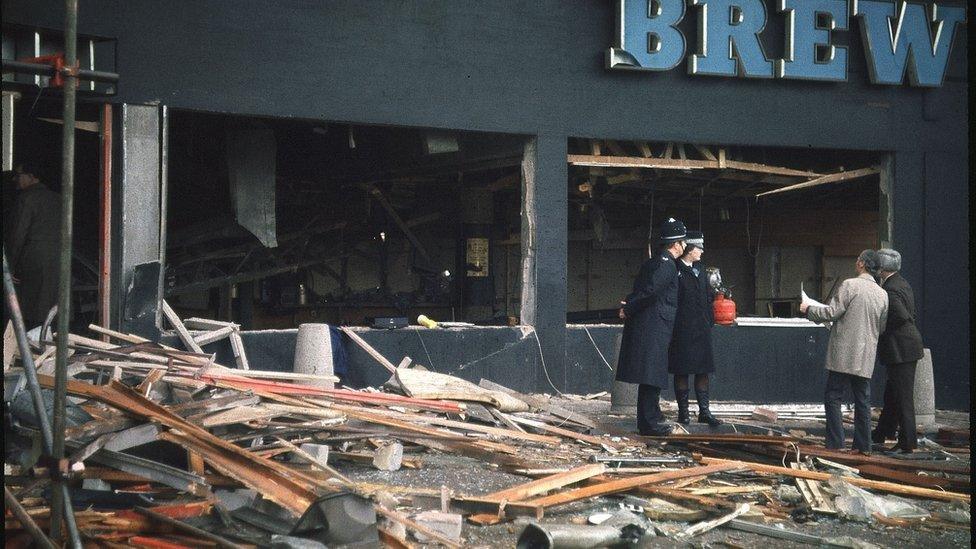
- Published22 March 2019
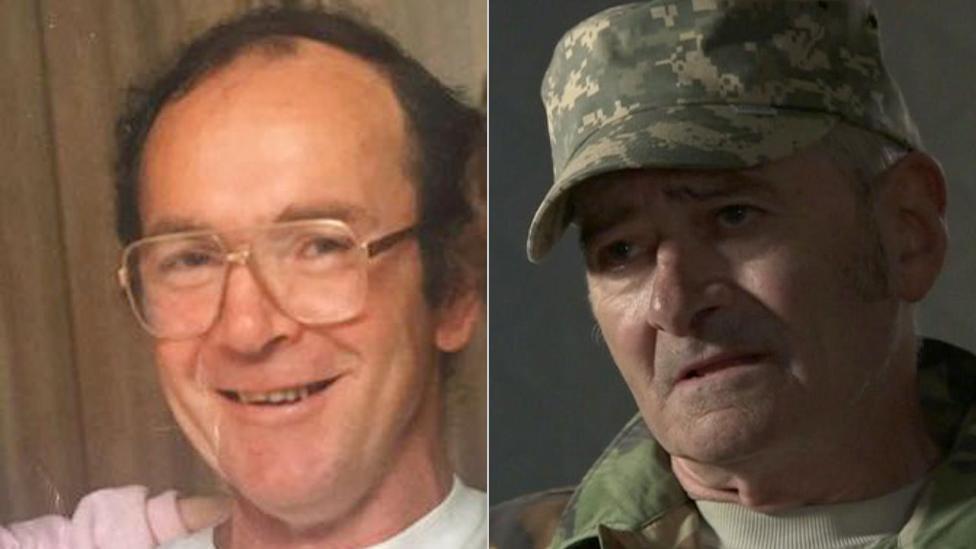
- Published5 April 2019
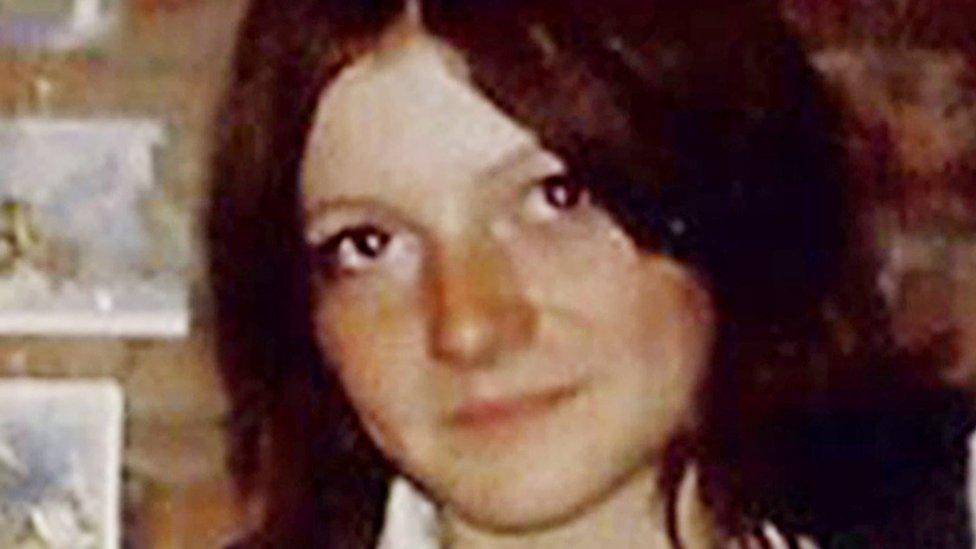
- Published10 July 2017
